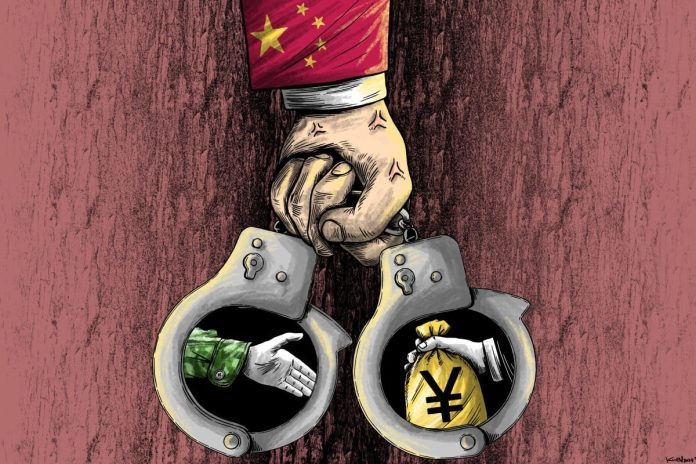Ten days into his first term as leader of China’s ruling Communist Party and its military, Xi Jinping promoted a new general.
It was November 2012, and Wei Fenghe was conferred with the new rank in a small ceremony at the military’s Bayi Building in Beijing.
Wei was commander-in-chief of the People’s Liberation Army Second Artillery Corps, which oversaw the country’s nuclear arsenal at the time. State news agency Xinhua reported that Wei looked “orderly and in high spirits” and Xi had “shaken his hand warmly”.
A decade on, things could not be more different. After vanishing from public view last year, Wei – who was defence minister from 2018 to 2023 – has been expelled from the party, along with his successor Li Shangfu. In the announcement in June, Beijing accused both Wei and Li of bribery and political disloyalty.
The wording on Wei was especially harsh. It said he had “betrayed the trust of the party and the [Central Military Commission], seriously polluted the political environment of the military, and caused great damage to the party’s cause, national defence and military construction, as well as the image of its senior leaders”.
A number of top generals have been purged in Xi’s campaign to stamp out corruption in the world’s largest army. But Wei stands out as the only one accused of “being disloyal and losing one’s chastity” – odd wording that analysts say could suggest he was compromised by a hostile force.
It’s not over yet
The war on military corruption – now in its second decade – has brought down more generals than the number killed on 20th century battlefields. Beijing has declared an “overwhelming victory” in the fight against graft, while PLA generals have praised Xi’s command over the campaign as having “saved the military at a critical time”.
But there are many cases still unresolved – many of which involve military officers who were promoted when Xi was at the helm.
Analysts say the campaign is far from over, pointing to factors such as the rampant corruption in the military before Xi took over, the vast amount of money being spent on modernising weapons, and the “insular” culture of the PLA as the armed wing of the party.
Another corruption investigation of a senior officer, Sun Jinming, was announced at last month’s party conclave, the third plenum. Sun, who has also been expelled from the party, was chief of staff of the PLA Rocket Force overseeing the nuclear arsenal – formerly known as the Second Artillery Corps. At least eight past or serving senior officials from the Rocket Force have been placed under investigation for graft since last year.









































